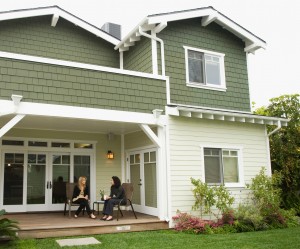Residential Drug Rehab Programs

Residential drug rehab gives you a comfortable place to focus on your recovery.
For those who do not respond well to an outpatient rehabilitation setting or for who have already tried an inpatient program that lasts 30 days or so, residential drug rehab programs may be the next most suitable choice. Residential drug rehab programs provide long term care, in an inpatient setting that is typically similar to a hospital like or home like setting depending on the facility itself. Most residential rehab programs feature hotel like accommodations where patients will share a room with one or more other patients, share a bathroom and have shared living quarters.
Residential rehab programs provide counseling and therapy to patients while they live in the facility and in most cases such counseling is provided on at least a daily basis if not multiple times per day depending on the severity of the individual’s addiction and their need for treatment. Other services are also provided at residential drug rehab programs to ensure that the patient is kept occupied, entertained, on track to recovery and drug free.
Services Provided at Residential Drug Rehab Programs
The most common services that you can expect to find at residential drug rehab programs include counseling and therapy which are provided on both a group and individual basis. Throughout these two types of counseling and therapy the patient is able to heal from psychological aspects of their addiction which may include depression, anxiety or other forms of mental illness. Other services provided at residential drug rehab programs include:
- Educational guidance
- Nutritional guidance
- Exercise programs
- Meditation
- Housing
- Meals
- Trust building exercises
- Relationship counseling
Who Needs Residential Rehab?
Anyone who has already tried inpatient programs that have not been effective may be a good candidate for residential rehab. Residential rehab is much like inpatient rehab except that residential rehab programs are typically more long term than standard inpatient rehab programs so they are a better option for those who need a more prolonged period of treatment to ensure their success. Those who do not have a place to live while the receive treatment or who may be subjected to drug or alcohol abuse outside of treatment are also good candidates for residential rehab.
Patients who suffer from heroin addiction, methamphetamine addiction, crack addiction, opiate or prescription drug addiction and alcohol addiction are all excellent candidates for residential rehab. Residential rehab programs can help these patients by providing them a safe and secure environment in which they can receive treatment and where they can take the necessary time needed to effectively overcome addiction.